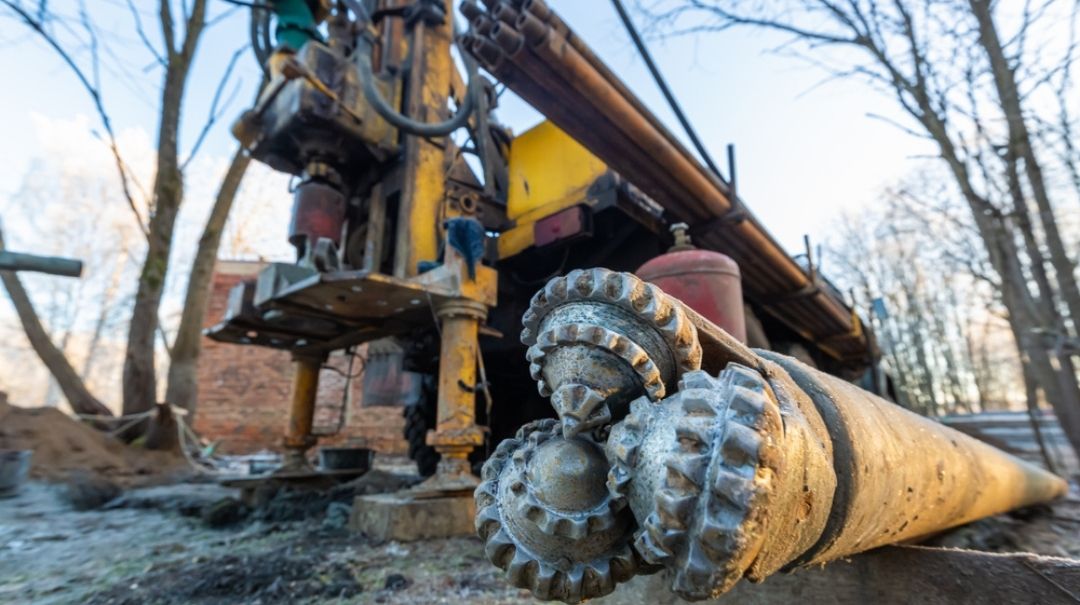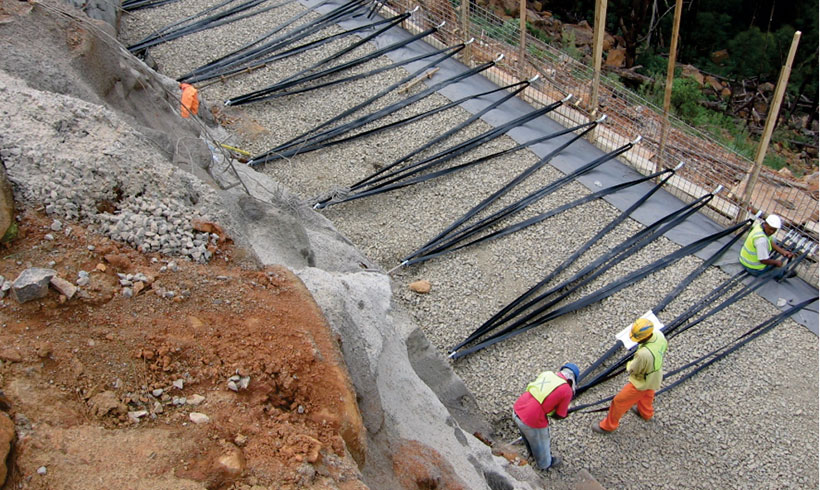The Value of Geotechnical Engineering in Resolving Ecological Obstacles and Enhancing Building And Construction Safety And Security
Geotechnical engineering serves as a foundation in the crossway of environmental stewardship and building security, giving essential understandings into the habits of soil and rock under numerous conditions. By implementing calculated site investigations and customized mitigation actions, geotechnical engineers play an important role in guarding both human lives and environmental integrity.

Duty of Geotechnical Design
Geotechnical design plays an important role in the design and building of facilities by resolving the actions of soil and rock materials under numerous conditions. This field of engineering is essential for understanding the interaction in between frameworks and the ground, which includes figuring out the load-bearing capacity of soil, analyzing stability, and forecasting prospective negotiation or failure.
Geotechnical designers are in charge of carrying out website examinations, which involve sampling and testing soil and rock to collect data on their chemical and physical homes. This details is important for designing foundations, maintaining wall surfaces, and various other earth-retaining structures that ensure safety and security and longevity. Geotechnical engineering informs the selection of proper building and construction methods and materials, thereby minimizing dangers connected with soil actions.
Additionally, the integration of geotechnical engineering principles right into city planning and environmental management is crucial for dealing with obstacles such as ground contamination and groundwater management. By understanding geotechnical elements, designers can develop sustainable remedies that improve the durability of infrastructure against all-natural dangers, while also promoting environmental stewardship. Eventually, the function of geotechnical engineering is crucial for attaining risk-free, long lasting, and environmentally mindful building and construction methods.
Soil Disintegration Mitigation
Dirt erosion positions a substantial threat to both environmental security and framework integrity, impacting around 24 billion lots of fertile soil shed every year worldwide. This phenomenon is aggravated by variables such as logging, urbanization, and bad farming techniques. Geotechnical engineering plays a pivotal duty in establishing efficient soil erosion mitigation methods that safeguard both the setting and building tasks.
One technique entails the application of erosion control approaches such as greenery planting, which maintains dirt via origin systems. In addition, the building of preserving walls and balconies can properly minimize surface area drainage and protect prone locations from erosion. Appropriate drain layout is also vital; it minimizes water buildup and directs excess overflow far from critical structures.
In addition, geotechnical designers use dirt stabilization methods, such as the application of geotextiles and naturally degradable mats, to enhance soil cohesion and protect against degradation - geotechnical engineer description. Routine tracking and evaluation of erosion-prone websites allow timely interventions, guaranteeing long-term sustainability. By integrating these strategies, geotechnical design not only minimizes the influences of soil disintegration however also adds to the resilience of framework against environmental difficulties, ultimately promoting a more secure and a lot more lasting developed setting
Groundwater Security Techniques
Groundwater acts as an important source for drinking water, farming, and commercial processes, making its security crucial for ecological sustainability and public wellness. Reliable groundwater security strategies are critical in reducing contamination dangers and making certain the longevity of this resource.

Routine tracking of groundwater top quality is also crucial, allowing very early detection of contamination sources and facilitating prompt removal initiatives. Employing advanced modern technologies, such as geophysical surveys and remote noticing, help in identifying possible threats to groundwater gets.
Moreover, public education and learning and stakeholder interaction are important, cultivating area assistance for groundwater security initiatives. geotechnical companies in south africa. By incorporating regulatory steps, technological innovations, and area involvement, we can develop a detailed structure that safeguards groundwater sources while promoting lasting development and building methods
Landslide Danger Monitoring
Landslides position substantial dangers to both human security and infrastructure, making effective risk administration strategies vital. Geotechnical design plays a vital function in determining, assessing, and mitigating landslide threats. An extensive understanding of slope security, dirt auto mechanics, and hydrology is important for developing reliable danger administration strategies.
The initial step in landslide risk administration includes thorough site examinations, which consist of geological mapping and dirt screening. These examinations help engineers assess the possibility for landslides by recognizing critical variables such as incline angles, soil composition, and water material. Utilizing advanced technologies such as remote picking up and geophysical studies can improve the precision of these assessments.
When threats are recognized, suitable mitigation actions can be carried out. These might include engineering remedies such as maintaining walls, drain systems, and incline stabilization techniques. Keeping an eye on systems need to be developed to discover indications of ground movement and changes in water degrees, enabling for positive treatments.

Enhancing Building And Construction Safety
Building and construction sites usually offer a myriad of dangers that can endanger worker safety and security and job stability. Geotechnical engineering plays a vital duty in improving construction safety by supplying vital understandings into subsurface problems. Via thorough dirt and rock analysis, geotechnical engineers can identify possible threats, such as soil instability, groundwater issues, and seismic vulnerabilities, which might jeopardize the safety of building and construction activities.
Executing geotechnical remedies, such as proper structure style and the usage of keeping frameworks, mitigates these risks substantially. These solutions not just make certain the security of the structures being developed however likewise produce a much safer working atmosphere for construction workers.
In addition, fostering a culture of safety and security through training and adherence to developed safety read here protocols additionally boosts construction site safety. By integrating geotechnical experience right into the planning and execution stages, building and construction tasks can achieve greater safety and security standards, inevitably shielding workers and making sure effective job conclusion.
Final Thought
To conclude, geotechnical engineering serves as an essential technique in advertising and taking on ecological obstacles building and construction safety. Through efficient soil erosion reduction, groundwater security methods, and landslide threat administration, geotechnical engineers add to the advancement of resilient facilities. The assimilation of these techniques promotes a safer construction environment and improves the sustainability of civil engineering tasks. Inevitably, the proficiency of geotechnical designers is vital in securing both all-natural sources and human lives versus prospective hazards.
Geotechnical design offers as a foundation in the junction of ecological stewardship and construction safety and security, offering critical understandings right into the behavior of dirt and rock under different problems. Geotechnical design informs the choice of suitable building and her comment is here construction methods and materials, consequently minimizing dangers connected with soil habits.
Geotechnical engineering plays a crucial duty in developing effective dirt disintegration mitigation techniques that guard both the atmosphere and building and construction projects.
In addition, geotechnical designers use soil stablizing strategies, such as the application of geotextiles and naturally degradable floor coverings, to improve soil communication and protect against deterioration. With extensive dirt and rock analysis, geotechnical engineers can identify possible threats, such as dirt instability, groundwater concerns, and seismic vulnerabilities, which may jeopardize the safety and security of building and construction activities.
Comments on “Why All About Geotechnical Engineering Matters in Today's Facilities Growth”